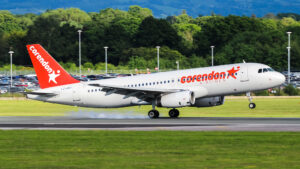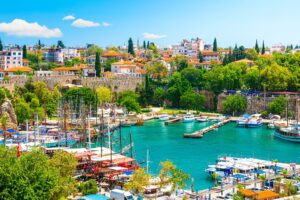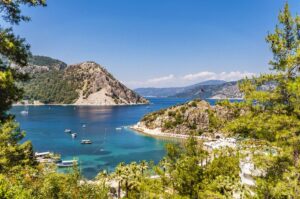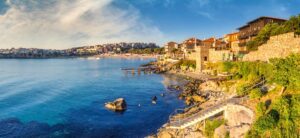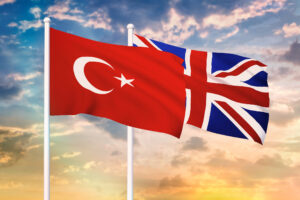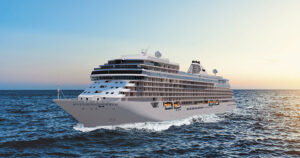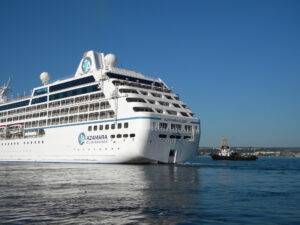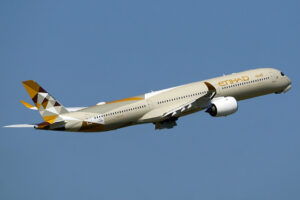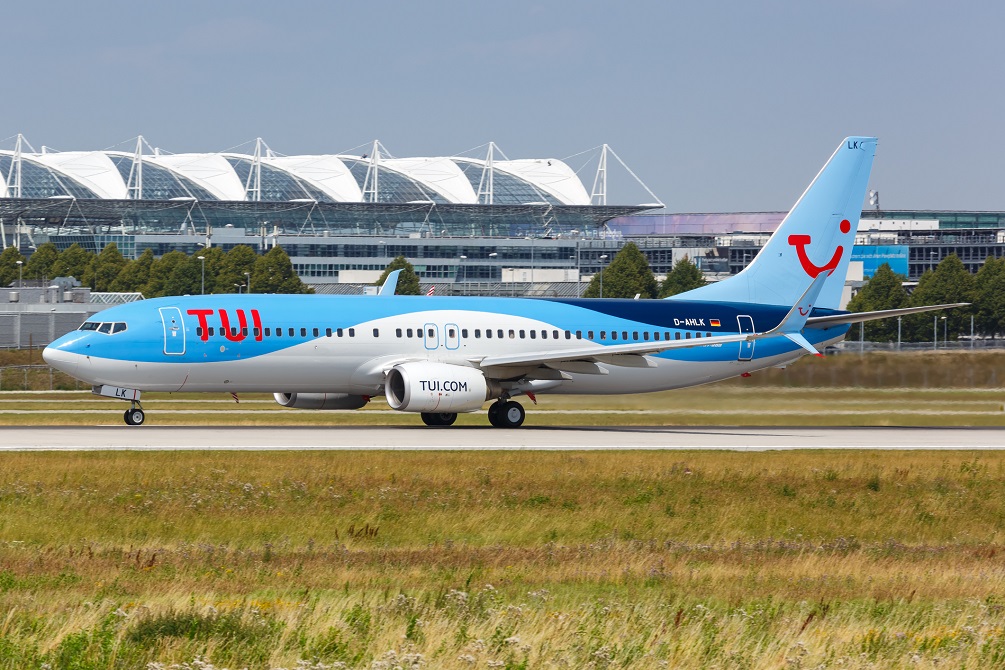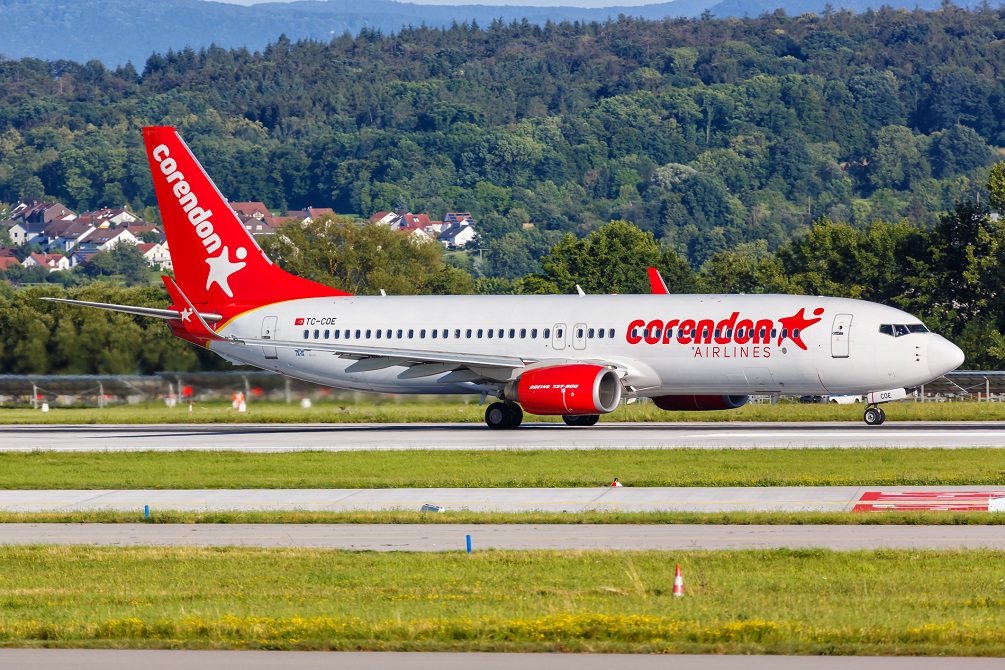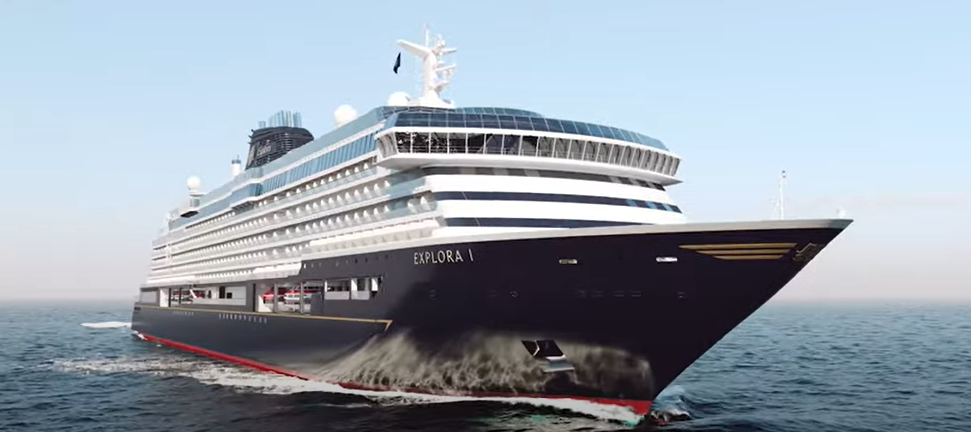Turkey
Turkey is a country of contrasting landscapes, from dense forests to gentle seas. It’s the home of exquisite, world-renowned Turkish cuisine and a very hospitable people.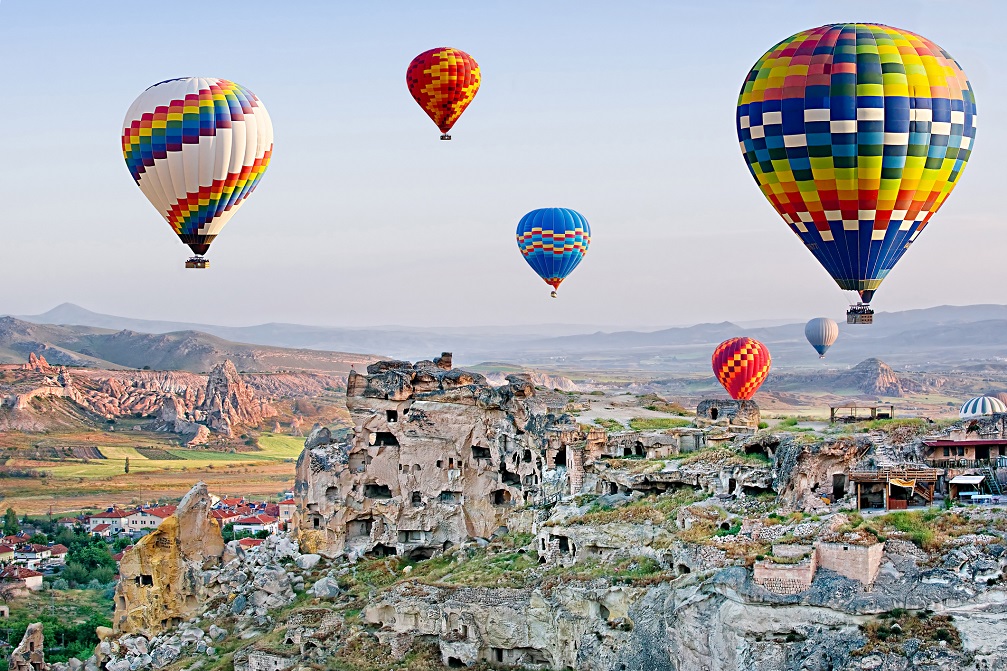
Turkey is the ultimate bucket list destination—and not just for foodies. There is so much more to a holiday in Turkey than the vast majority of beach-bound tourists will ever experience- and this is a shame!
The nation known as a bridge between two continents is the home of vibrant, cosmopolitan cities that make for priceless excursions and experiences. Aside from the cities, there are plenty of photogenic landscapes to experience when you travel to Turkey, from the mountainous inner lands to the coastlines of the different seas.
Modern Turkey was born from various cultural influences and the nation’s government molded it into what it is today: a culturally diverse country. The combination of cultural elements borrowed from various corners of the world is evident in the music and literature that’s popular in the country.
One aspect of Turkey that has gained a profound influence is its cuisine. Turks dub Turkish cuisine as the best in the world. It’s fair to say that this could very well be true considering it’s a combination of flavours imported from the Middle East, Eastern Europe and Asia. What is certain is that you will not be disappointed by the food on offer during your Turkey holiday!
Turkey is the ultimate bucket list destination—and not just for foodies. There is so much more to a holiday in Turkey then the vast majority of beach bound tourists will ever experience- and this is a shame!
The nation known as a bridge between two continents is the home of vibrant, cosmopolitan cities that make for priceless excursions and experiences. Aside from the cities, there are plenty of photogenic landscapes to experience when you travel to Turkey, from the mountainous inner lands to the coastlines of the different seas.
Modern Turkey was born from various cultural influences and the nation’s government moulded it into what it is today: a culturally diverse country. The combination of cultural elements borrowed from various corners of the world is evident in the music and literature that’s popular in the country.
One aspect of Turkey that has gained a profound influence is its cuisine. Turks dub Turkish cuisine as the best in the world. It’s fair to say that this could very well be true considering it’s a combination of flavours imported from the Middle East, Eastern Europe and Asia. What is certain is that you will not be disappointed by the food on offer during your Turkey holiday!
The three seas that form a boundary around Turkey and its unique position on the globe barely scratch the surface of everything you should know before you book a holiday to Turkey.
Fair warning, as you get to know more about Turkey, you may find a new home in the country.
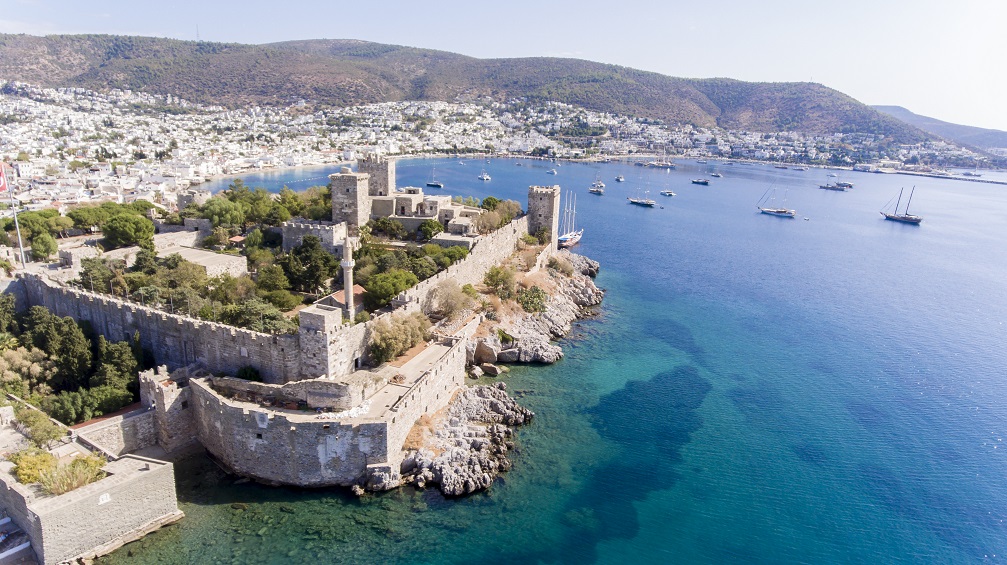


Turkey, officially the Republic of Turkey, is a country located in West Asia and Southeast Europe.
Greece and Bulgaria border Turkey in the northwest; Georgia in the northeast; the Black Sea in the North; Syria and the Mediterranean Sea in the south; the Aegean Sea in the west; Armenia, Azerbaijan, and Iran in the east; and Iraq in the southeast.
Ninety-seven percent of Turkey lies on the Asian continent, and three percent occupies the European continent, making Istanbul—the financial capital of Turkey—the only city in the world to exist on two continents.
Turkey is split into seven geographical regions (Eastern Anatolia, Central Anatolia, Southeastern Anatolia, Marmara, Aegean, Mediterranean, and the Black Sea), each with contrasting landscapes and climates.
Inland, steppe grasslands and mountainous sceneries dominate the east, southeast, and central regions of Anatolia. Located within the inner areas of Anatolia is Ankara, the capital city of Turkey.
Dense forests frame the northern Black Sea and the southern Mediterranean coastlands. A narrow plain runs along the Mediterranean coast, a section of which the Taurus Mountains border.
Numerous rivers descend into the surrounding seas, and there are about 50 lakes scattered around the country.
Getting to Turkey is easy for most European countries. Even the most remote local airports will have flights to Turkey during the summer months! Given the sheer volume of airlines operating flights to Turkey, you can find very cheap deals if you book in advance. The cheapest flights to Turkey can be as low as £40 each way. The low airfares also mean that most people will be able to access very cheap deals for holidays to Turkey if they book early. Cheap deals to Turkey should not however be confused with poor quality. It is possible to have a luxury holiday in Turkey for a fraction of the price of an equivalent holiday further afield!
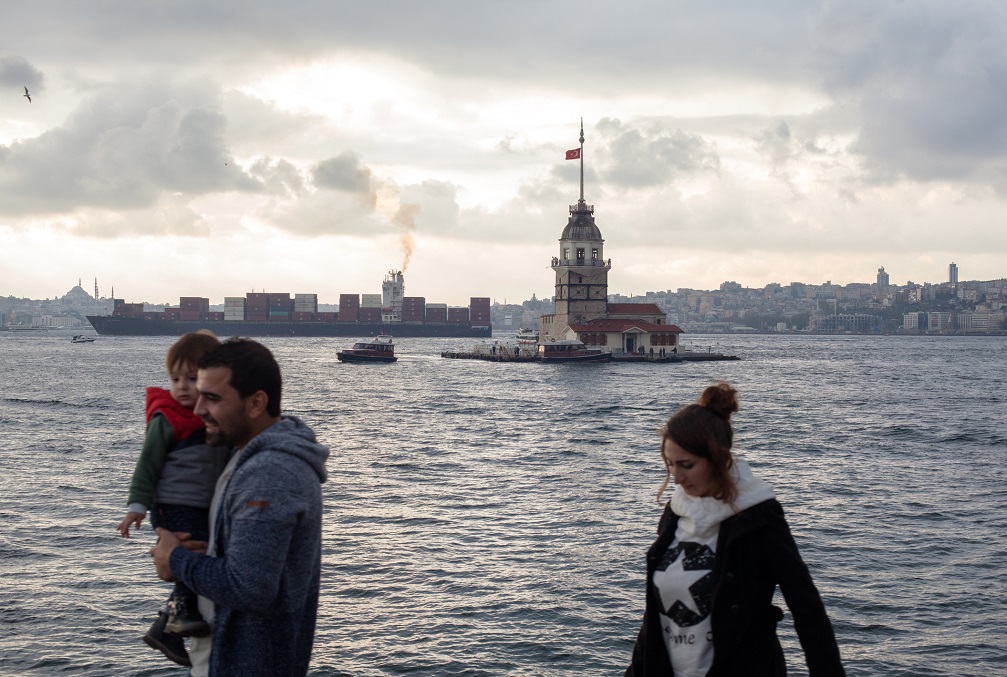


Turkey’s unique geographical position and the surrounding seas create a dry, semi-continental, Mediterranean climate. The nation has six climatic zones as well.
Now, you might be wondering what the ideal time to travel to Turkey is.
For most, spring (mid-March to mid-June) is prime time for Turkey holidays.
Daytime temperatures aren’t too high throughout the country, and days are long. Cities like Istanbul and Cappadocia are super popular around this time, so hotels become fully booked, and prices skyrocket.
But, if you are keen to visit one of Turkey’s beaches, spring (excluding an Easter holiday in Turkey) is the offseason. There will be fewer crowds, and you can find affordable beach resorts.
The same applies for autumn— which another perfect time to book your holiday to Turkey. During autumn (Mid-September to mid-November), temperatures are mild. Although there is a higher chance of rainfall in October (averaging about 400mm), it’s still an excellent time to visit historical sites.
As for the other seasons, summer (mid-June through mid-September) is sunny and hot, so expect beaches to be packed.But guess what summer allows? A chance for you to explore the cities without all the crowds.
Winter (Mid-December to Mid-march) is the least popular time for travellers. The weather can be either super cold, rainy, mild, or snowy, depending on the climatic region.
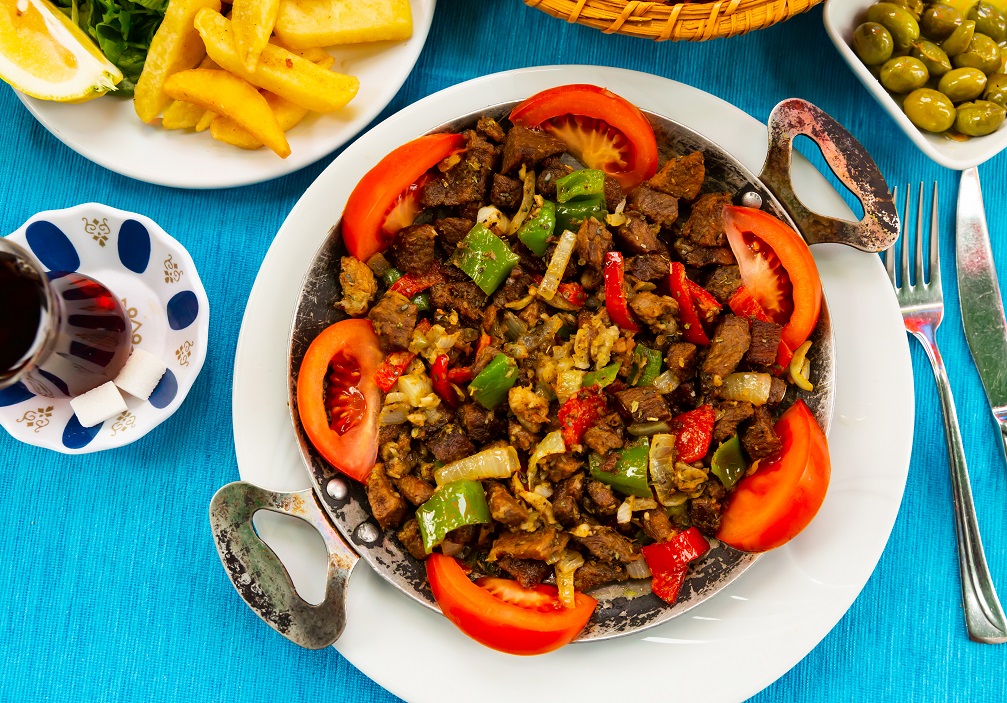


Anyone who returns from a holiday in Turkey will almost certainly have something positive to say about the food. Even the country’s national airline boasts an array of awards for the quality of its in-flight meals!
Turkey is a culinary paradise, and if you are a foodie, you are in luck because the choices are endless, mouth-watering, and there is a chance you won’t want to leave the country. If you fly to Turkey on Turkish Airlines your culinary journey will start before you have even left your home country’s airspace. If you are lucky enough to travel in Business Class on Turkish Airlines, you will be so spoilt that you never want to eat on another airline again!
Turkish cuisine differs across the country, and specialities derive their names from places and may refer to different preparation styles. A tour across Turkey is one of the premier experiences for food lovers. A Turkey tour allows you to sample the subtle and not so subtle differences in cooking styles and ingredients across the different regions of the country. A well planned Turkey itinerary will also mean you don’t have to go out searching for the local delicacies as your tour will include visiting the best dining outlets.
It is what it is today—one of the world’s best cuisines—because of the heritage of the Ottoman cuisine, which fused the culinary practices of many cultures to create unique flavours and recipes. It’s often described as a blend of the culinary traditions of the neighbouring countries on the Asian, European, and African continent.
The further south and east you travel during your journey through Turkey, the spicier and richer the food is, and in the west, you will find plenty of seafood and vegetable dishes.
The Bosphorous is popular for fresh fish, while in Selcuk, near Ephesus, you can find pomegranate juice, local meatballs and tasty vegetable side dishes.
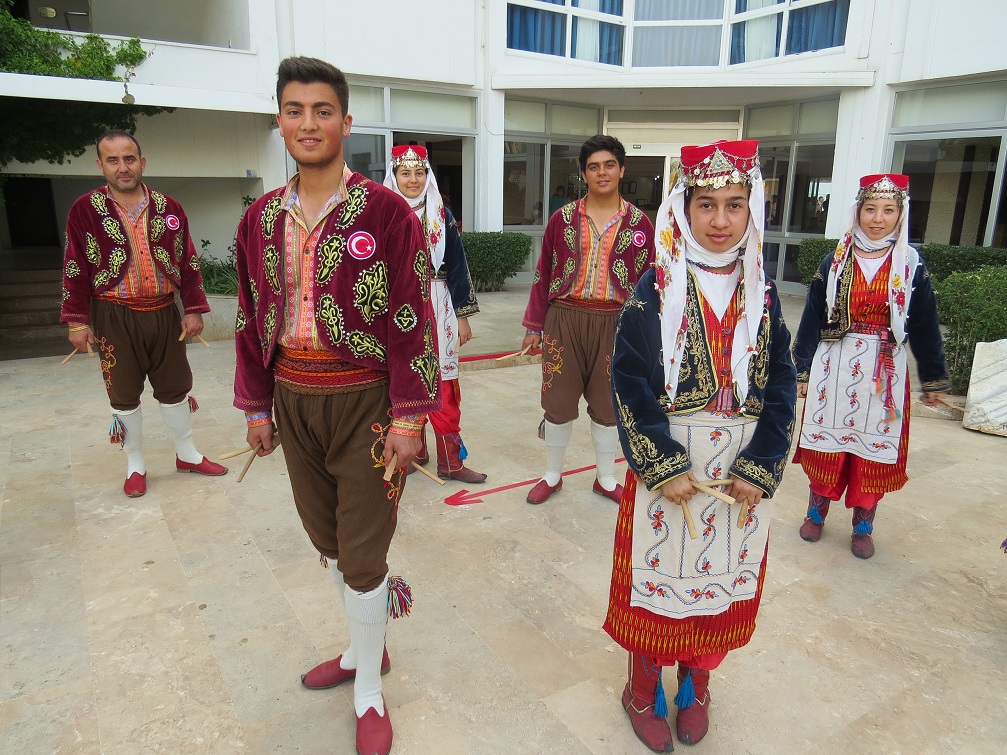


The recommended dress code for Turkey varies by region and season. But, there is an unspoken rule that most of what you pack for a Turkey holiday should be modest (except your beachwear, of course!).
In the cosmopolitan cities, Istanbul and Izmir, casual clothing is acceptable but nothing too short (for dresses and shorts), especially when visiting historical sites.
You can wear sleeveless tops, but tight shorts and anything too low cut won’t, well, cut it in central Turkey and the north coast.
As you travel toward Eastern and Southeast Turkey, the dress code becomes stricter; for men, long trousers and long-sleeved shirts are the right way to go, and as for women, long sleeves and dresses that reach below the knee are a must.
A hat and sunglasses are recommended when visiting in summer, as well as breathable clothing.
In winter and autumn, you will need warm clothing and garments to layer, as days can get super chilly. In September, temperatures fluctuate from warm to cold.
As for spring, March can be cold and from then on, it’ll be warmer. So pack for two seasons (spring and summer), especially clothes to layer.
One last thing to note: if you plan to visit a mosque or a religious site, dress modestly.
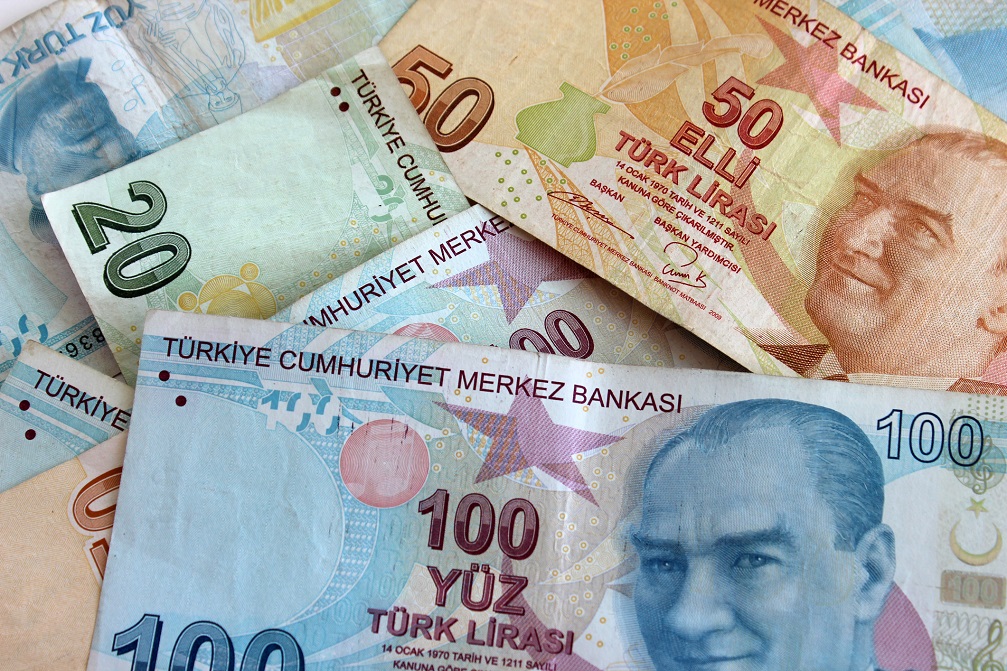


The official currency of Turkey is the Turkish Lira (TRY). One Turkish Lira is subdivided into 100 kuruş.
Banknotes come in denominations of 5, 10, 20, 50, 100 and 200 TL and coins in denominations of 1, 5, 10, 25 and 50 kuruş and 1 Turkish lira.
Large shopping centres, hotels and restaurants also accept the US Dollar and Euro. Carrying the local currency will be convenient and useful for you in most cases. You can convert your foreign currency in Turkey for Turkish Lira at exchange offices and banks.
You can find ATMs around Turkey at the airport and near bank branches. It’s safer to use ATMs close to bank branches instead of the free-standing kind you find at tourist attractions.
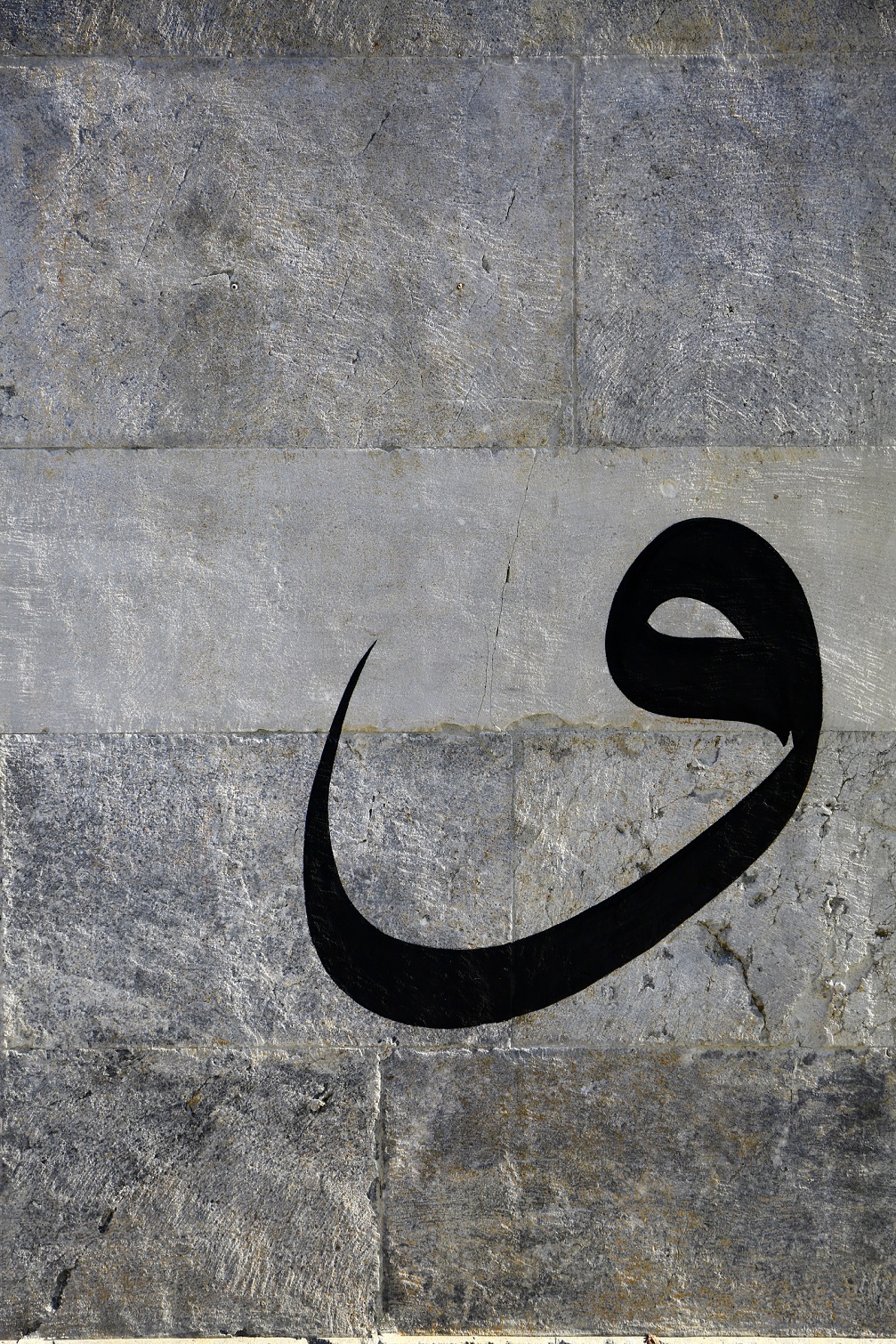


The official language of Turkey is Turkish.
Apart from Turkish, Arabic, Kurmanji, and Zazaki are among other minority languages spoken by locals.
English is the second language spoken by many in large cities like Istanbul and tourist towns. But not many people outside of these areas speak English. Of the entire population of Turkey, only about seventeen percent are English speakers.
Learning a few Turkish words and phrases can make exploring every facet of the country a bit better. Turks will appreciate it even if you attempt to speak to them in their native language.
Here are some useful Turkish words and phrases:
- Hello – Merhaba
- Excuse me – Pardon
- Please – Lütfen
- Thank you – Teşekkürler (Te-shake-cur-lar)
- Yes – Evet
- No – Hayır
- Where is x? – Nerede x?
- Tourist Information – Turist Danışma
- I would like to buy… – Satın almak istiyorum…
- How much does this cost? – Ne kadar ediyor?
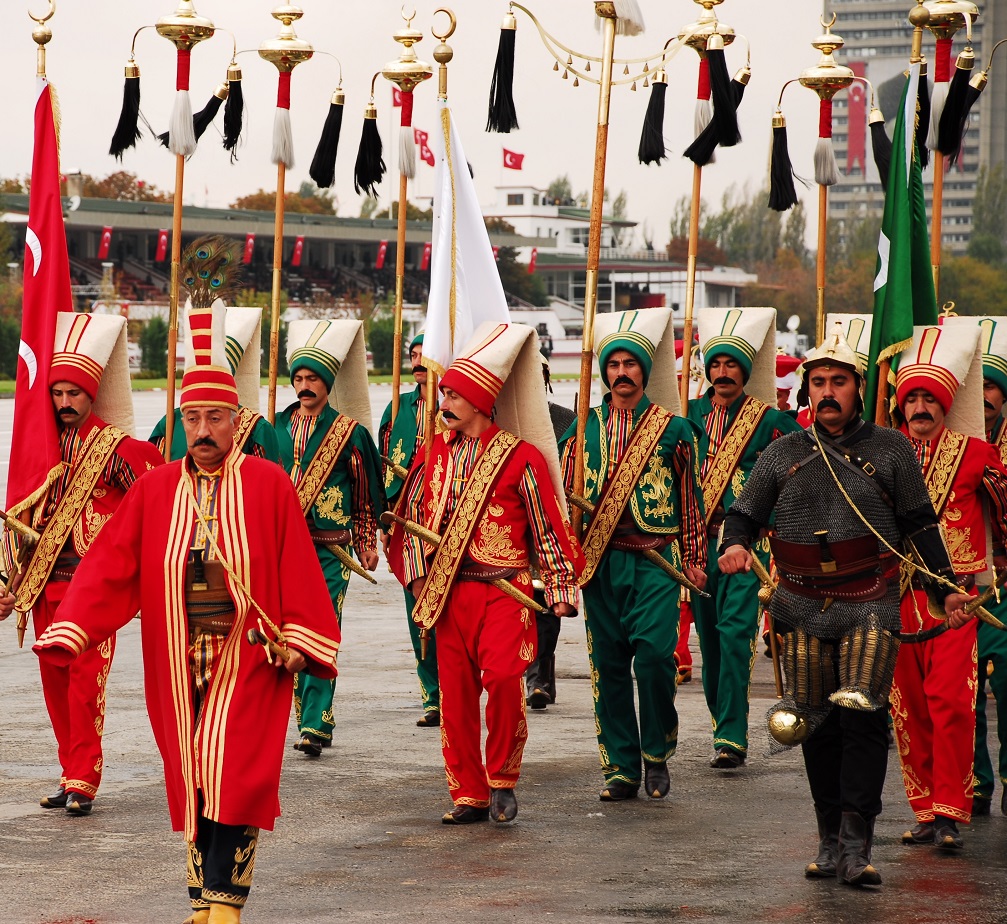


Turkish culture is as unique as the country’s location and weather.
The nation has drawn elements from the cultures and traditions of the Oğuz Turkic and Anatolian, and Ottoman (a combination of Greco-Roman and Islamic cultures).
Over time, Turkey became a country characterized as having had a profound influence from the west.
How the west influenced Turkey when they don’t even exist on the same continent is understandable when you go all the way back to the inception of modern Turkey. The government of the newly formed republic led the charge to make the country more western, secular, and contemporary by investing in fine arts such as theatres and museums.
The mix of cultures in the nation is evident in Turkish music and literature. Music genres that are popular in the country such as Anatolian rock, Arabesque, and Turkish hip hop have roots in European, Central Asian Turkic, and Islamic cultures. Turkish literature is a descendent of the Persian and Arabic literature that was sought after during the Ottoman era and Western literary traditions.
Turks make up the vast majority of the nation’s population, while Kurds are the largest minority group that populates eastern Anatolia.
Turkish hospitality is like no other and can make visitors want to live in the country permanently. This inherent friendliness comes about from an ancient belief that visitors should be treated as guests sent by God.
As a way of greeting, it is customary for Turkish people to kiss both cheeks—even men.
Treating the Turkish flag with respect is vital for anyone that visits the nation, so be a good traveler and be respectful.
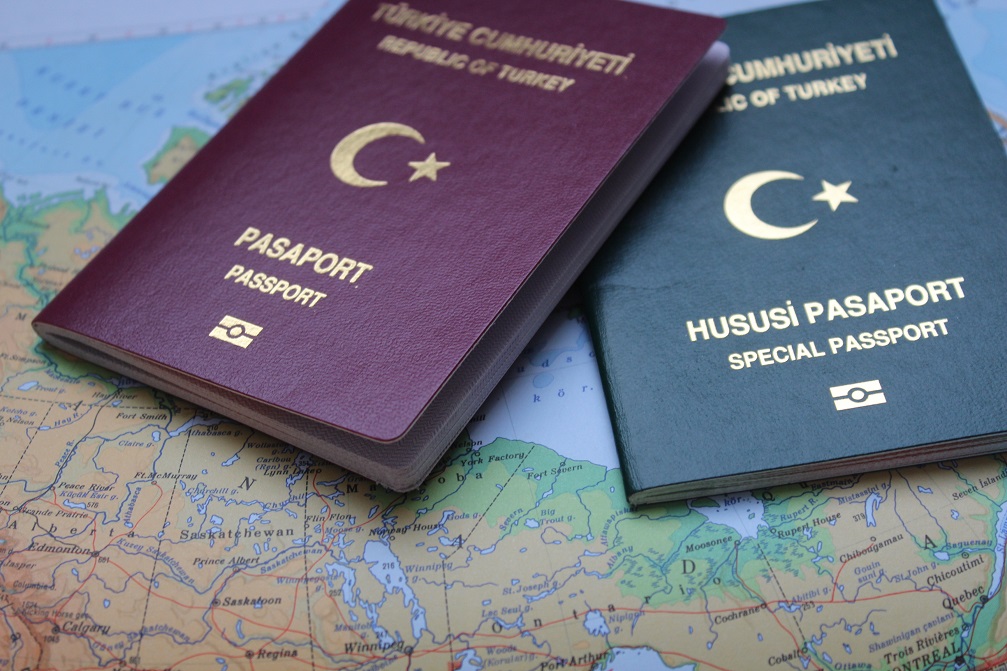


British nationals don’t require a Turkey visa for visits of up to 90 days in any 180-day period when traveling for tourist purposes.
There might be different visa requirements for those whose British nationality differs, such as British nationals (overseas). Before traveling, make sure you inquire about your visa with the Turkish Consulate General.
Your passport should be valid for at least 6 months from the date of entry into Turkey, and keep a full blank page for the entry and exit stamps.
If you plan to stay in Turkey for more than 90 days, you can get a long-term visa or a residence permit from the local authorities before the 90 days have elapsed.
When entering Turkey through a land border, ensure the officials have stamped your passport with the correct date before proceeding into the country.



The plug sockets in Turkey are type F (circular, with two rounded pins and two earth clips), which is also compatible with type C (circular, with two rounded pins), and type E (circular, with two rounded pins and a grounding pin above the center).
Turkey operates on a standard voltage of 220V, and a standard frequency is 50Hz.



Turkey is the ultimate bucket list destination—and not just for foodies. There is so much more to a holiday in Turkey than the vast majority of beach-bound tourists will ever experience- and this is a shame!
The nation known as a bridge between two continents is the home of vibrant, cosmopolitan cities that make for priceless excursions and experiences. Aside from the cities, there are plenty of photogenic landscapes to experience when you travel to Turkey, from the mountainous inner lands to the coastlines of the different seas.
Modern Turkey was born from various cultural influences and the nation’s government molded it into what it is today: a culturally diverse country. The combination of cultural elements borrowed from various corners of the world is evident in the music and literature that’s popular in the country.
One aspect of Turkey that has gained a profound influence is its cuisine. Turks dub Turkish cuisine as the best in the world. It’s fair to say that this could very well be true considering it’s a combination of flavours imported from the Middle East, Eastern Europe and Asia. What is certain is that you will not be disappointed by the food on offer during your Turkey holiday!
Turkey is the ultimate bucket list destination—and not just for foodies. There is so much more to a holiday in Turkey then the vast majority of beach bound tourists will ever experience- and this is a shame!
The nation known as a bridge between two continents is the home of vibrant, cosmopolitan cities that make for priceless excursions and experiences. Aside from the cities, there are plenty of photogenic landscapes to experience when you travel to Turkey, from the mountainous inner lands to the coastlines of the different seas.
Modern Turkey was born from various cultural influences and the nation’s government moulded it into what it is today: a culturally diverse country. The combination of cultural elements borrowed from various corners of the world is evident in the music and literature that’s popular in the country.
One aspect of Turkey that has gained a profound influence is its cuisine. Turks dub Turkish cuisine as the best in the world. It’s fair to say that this could very well be true considering it’s a combination of flavours imported from the Middle East, Eastern Europe and Asia. What is certain is that you will not be disappointed by the food on offer during your Turkey holiday!
The three seas that form a boundary around Turkey and its unique position on the globe barely scratch the surface of everything you should know before you book a holiday to Turkey.
Fair warning, as you get to know more about Turkey, you may find a new home in the country.



Turkey, officially the Republic of Turkey, is a country located in West Asia and Southeast Europe.
Greece and Bulgaria border Turkey in the northwest; Georgia in the northeast; the Black Sea in the North; Syria and the Mediterranean Sea in the south; the Aegean Sea in the west; Armenia, Azerbaijan, and Iran in the east; and Iraq in the southeast.
Ninety-seven percent of Turkey lies on the Asian continent, and three percent occupies the European continent, making Istanbul—the financial capital of Turkey—the only city in the world to exist on two continents.
Turkey is split into seven geographical regions (Eastern Anatolia, Central Anatolia, Southeastern Anatolia, Marmara, Aegean, Mediterranean, and the Black Sea), each with contrasting landscapes and climates.
Inland, steppe grasslands and mountainous sceneries dominate the east, southeast, and central regions of Anatolia. Located within the inner areas of Anatolia is Ankara, the capital city of Turkey.
Dense forests frame the northern Black Sea and the southern Mediterranean coastlands. A narrow plain runs along the Mediterranean coast, a section of which the Taurus Mountains border.
Numerous rivers descend into the surrounding seas, and there are about 50 lakes scattered around the country.
Getting to Turkey is easy for most European countries. Even the most remote local airports will have flights to Turkey during the summer months! Given the sheer volume of airlines operating flights to Turkey, you can find very cheap deals if you book in advance. The cheapest flights to Turkey can be as low as £40 each way. The low airfares also mean that most people will be able to access very cheap deals for holidays to Turkey if they book early. Cheap deals to Turkey should not however be confused with poor quality. It is possible to have a luxury holiday in Turkey for a fraction of the price of an equivalent holiday further afield!



Turkey’s unique geographical position and the surrounding seas create a dry, semi-continental, Mediterranean climate. The nation has six climatic zones as well.
Now, you might be wondering what the ideal time to travel to Turkey is.
For most, spring (mid-March to mid-June) is prime time for Turkey holidays.
Daytime temperatures aren’t too high throughout the country, and days are long. Cities like Istanbul and Cappadocia are super popular around this time, so hotels become fully booked, and prices skyrocket.
But, if you are keen to visit one of Turkey’s beaches, spring (excluding an Easter holiday in Turkey) is the offseason. There will be fewer crowds, and you can find affordable beach resorts.
The same applies for autumn— which another perfect time to book your holiday to Turkey. During autumn (Mid-September to mid-November), temperatures are mild. Although there is a higher chance of rainfall in October (averaging about 400mm), it’s still an excellent time to visit historical sites.
As for the other seasons, summer (mid-June through mid-September) is sunny and hot, so expect beaches to be packed.But guess what summer allows? A chance for you to explore the cities without all the crowds.
Winter (Mid-December to Mid-march) is the least popular time for travellers. The weather can be either super cold, rainy, mild, or snowy, depending on the climatic region.



Anyone who returns from a holiday in Turkey will almost certainly have something positive to say about the food. Even the country’s national airline boasts an array of awards for the quality of its in-flight meals!
Turkey is a culinary paradise, and if you are a foodie, you are in luck because the choices are endless, mouth-watering, and there is a chance you won’t want to leave the country. If you fly to Turkey on Turkish Airlines your culinary journey will start before you have even left your home country’s airspace. If you are lucky enough to travel in Business Class on Turkish Airlines, you will be so spoilt that you never want to eat on another airline again!
Turkish cuisine differs across the country, and specialities derive their names from places and may refer to different preparation styles. A tour across Turkey is one of the premier experiences for food lovers. A Turkey tour allows you to sample the subtle and not so subtle differences in cooking styles and ingredients across the different regions of the country. A well planned Turkey itinerary will also mean you don’t have to go out searching for the local delicacies as your tour will include visiting the best dining outlets.
It is what it is today—one of the world’s best cuisines—because of the heritage of the Ottoman cuisine, which fused the culinary practices of many cultures to create unique flavours and recipes. It’s often described as a blend of the culinary traditions of the neighbouring countries on the Asian, European, and African continent.
The further south and east you travel during your journey through Turkey, the spicier and richer the food is, and in the west, you will find plenty of seafood and vegetable dishes.
The Bosphorous is popular for fresh fish, while in Selcuk, near Ephesus, you can find pomegranate juice, local meatballs and tasty vegetable side dishes.



The recommended dress code for Turkey varies by region and season. But, there is an unspoken rule that most of what you pack for a Turkey holiday should be modest (except your beachwear, of course!).
In the cosmopolitan cities, Istanbul and Izmir, casual clothing is acceptable but nothing too short (for dresses and shorts), especially when visiting historical sites.
You can wear sleeveless tops, but tight shorts and anything too low cut won’t, well, cut it in central Turkey and the north coast.
As you travel toward Eastern and Southeast Turkey, the dress code becomes stricter; for men, long trousers and long-sleeved shirts are the right way to go, and as for women, long sleeves and dresses that reach below the knee are a must.
A hat and sunglasses are recommended when visiting in summer, as well as breathable clothing.
In winter and autumn, you will need warm clothing and garments to layer, as days can get super chilly. In September, temperatures fluctuate from warm to cold.
As for spring, March can be cold and from then on, it’ll be warmer. So pack for two seasons (spring and summer), especially clothes to layer.
One last thing to note: if you plan to visit a mosque or a religious site, dress modestly.



The official currency of Turkey is the Turkish Lira (TRY). One Turkish Lira is subdivided into 100 kuruş.
Banknotes come in denominations of 5, 10, 20, 50, 100 and 200 TL and coins in denominations of 1, 5, 10, 25 and 50 kuruş and 1 Turkish lira.
Large shopping centres, hotels and restaurants also accept the US Dollar and Euro. Carrying the local currency will be convenient and useful for you in most cases. You can convert your foreign currency in Turkey for Turkish Lira at exchange offices and banks.
You can find ATMs around Turkey at the airport and near bank branches. It’s safer to use ATMs close to bank branches instead of the free-standing kind you find at tourist attractions.



The official language of Turkey is Turkish.
Apart from Turkish, Arabic, Kurmanji, and Zazaki are among other minority languages spoken by locals.
English is the second language spoken by many in large cities like Istanbul and tourist towns. But not many people outside of these areas speak English. Of the entire population of Turkey, only about seventeen percent are English speakers.
Learning a few Turkish words and phrases can make exploring every facet of the country a bit better. Turks will appreciate it even if you attempt to speak to them in their native language.
Here are some useful Turkish words and phrases:
- Hello – Merhaba
- Excuse me – Pardon
- Please – Lütfen
- Thank you – Teşekkürler (Te-shake-cur-lar)
- Yes – Evet
- No – Hayır
- Where is x? – Nerede x?
- Tourist Information – Turist Danışma
- I would like to buy… – Satın almak istiyorum…
- How much does this cost? – Ne kadar ediyor?



Turkish culture is as unique as the country’s location and weather.
The nation has drawn elements from the cultures and traditions of the Oğuz Turkic and Anatolian, and Ottoman (a combination of Greco-Roman and Islamic cultures).
Over time, Turkey became a country characterized as having had a profound influence from the west.
How the west influenced Turkey when they don’t even exist on the same continent is understandable when you go all the way back to the inception of modern Turkey. The government of the newly formed republic led the charge to make the country more western, secular, and contemporary by investing in fine arts such as theatres and museums.
The mix of cultures in the nation is evident in Turkish music and literature. Music genres that are popular in the country such as Anatolian rock, Arabesque, and Turkish hip hop have roots in European, Central Asian Turkic, and Islamic cultures. Turkish literature is a descendent of the Persian and Arabic literature that was sought after during the Ottoman era and Western literary traditions.
Turks make up the vast majority of the nation’s population, while Kurds are the largest minority group that populates eastern Anatolia.
Turkish hospitality is like no other and can make visitors want to live in the country permanently. This inherent friendliness comes about from an ancient belief that visitors should be treated as guests sent by God.
As a way of greeting, it is customary for Turkish people to kiss both cheeks—even men.
Treating the Turkish flag with respect is vital for anyone that visits the nation, so be a good traveler and be respectful.



British nationals don’t require a Turkey visa for visits of up to 90 days in any 180-day period when traveling for tourist purposes.
There might be different visa requirements for those whose British nationality differs, such as British nationals (overseas). Before traveling, make sure you inquire about your visa with the Turkish Consulate General.
Your passport should be valid for at least 6 months from the date of entry into Turkey, and keep a full blank page for the entry and exit stamps.
If you plan to stay in Turkey for more than 90 days, you can get a long-term visa or a residence permit from the local authorities before the 90 days have elapsed.
When entering Turkey through a land border, ensure the officials have stamped your passport with the correct date before proceeding into the country.



The plug sockets in Turkey are type F (circular, with two rounded pins and two earth clips), which is also compatible with type C (circular, with two rounded pins), and type E (circular, with two rounded pins and a grounding pin above the center).
Turkey operates on a standard voltage of 220V, and a standard frequency is 50Hz.
Travel related news, information and inspirational articles and videos for travellers booking flights or holidays to Turkey. Ask questions about travel in Turkey and get answers from Turkey experts
NEWS
Inspiration, Information and Travel Guides
MEET THE Turkey EXPERTS
If you are looking to book a holiday to Turkey or needs some help and advice planning travel to Turkey then contact one of the UK based independent travel agents that specialise in Turkey itineraries.
FEATURED VIDEOS
Your Travel Questions Answered
Ask any travel related question and get an answer from one of our experts that will provide you with an answer from their personal experience
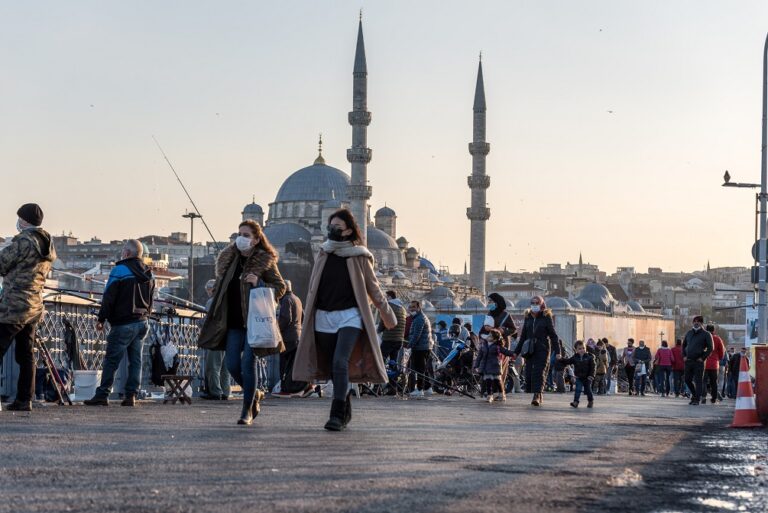

I'm off to Atlanta, USA and have almost 48 hours with me. My next flight to Atlanta is from the Istanbul Sabiha Gokcen International Airport. I'm wondering about bringing these two days to use. I was hoping you could suggest to me some really good and productive things to do on the Asian side of Turkey.


I have been flying a lot lately and I have realized that, while air travel is the fastest mode of travel, you always miss a lot of sceneries that you get to see otherwise. So, I just wanted to know whether there is a land-based transit like a train from Istanbul to Bucharest? Photo by: TrainSimFan - Own work, CC BY-SA 4.0, https://commons.wikimedia.org/w/index.php?curid=81387792











